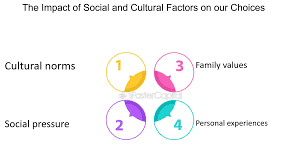Q. Impact of transnational
migration on Indian Society.
Transnational migration has profoundly reshaped Indian
society, creating a complex tapestry of social, economic, and cultural impacts.
India, with its vast diaspora, serves as a significant source of global
migration, and this movement has multifaceted consequences for the nation.
Here's an exploration of the impact of transnational
migration on Indian society:
Economic Impacts:
- Remittances:
- One
of the most significant impacts is the inflow of remittances.
Indian migrants working abroad send
substantial amounts of money back home, contributing significantly to the
national economy and supporting numerous families. These remittances often
improve living standards, fund education, and enable investments in housing and
businesses.
- Economic
Development:
- Migration
can stimulate economic development in both sending and receiving regions.
The skills and knowledge acquired by Indian migrants abroad can be
brought back to India, fostering innovation and entrepreneurship.
- Conversely,
the "brain drain" phenomenon, where highly skilled individuals
leave India, can hinder domestic development in certain sectors.
- Labor
Market Dynamics:
- Transnational
migration influences India's labor market. Outmigration can create labor
shortages in certain sectors, while the return of migrants with new
skills can enhance the workforce.
Social and Cultural Impacts:
- Cultural
Exchange:
- Migration
facilitates cultural exchange, leading to the diffusion of ideas, values,
and lifestyles. Indian migrants bring back new cultural influences, while
Indian culture is also disseminated globally.
- This
exchange can enrich Indian society, fostering greater cosmopolitanism and
tolerance. However, it can also lead to tensions between traditional and
modern values.
- Changes
in Family Structures:
- Transnational
migration can disrupt traditional family structures. Families may be
separated for extended periods, leading to changes in roles and
responsibilities.
- The
"feminization of agriculture" is a notable consequence, as
women often take on greater agricultural responsibilities when men
migrate.
- Social
Networks and Diaspora Communities:
- Indian
diaspora communities play a crucial role in maintaining connections with
the homeland. These networks provide support for migrants, facilitate
cultural exchange, and promote investment in India.
- These
networks also help to spread information, and influence political
opinions.
- Social
Inequalities:
- While
remittances can alleviate poverty, transnational migration can also
exacerbate social inequalities. Not everyone has the resources to
migrate, and the benefits of migration are not evenly distributed.
- There
are also many social problems that arise from migrant workers being
exploited in other countries.
Political Impacts:
- Political
Influence:
- The
Indian diaspora has become increasingly politically influential,
advocating for Indian interests in their host countries.
- They
also influence Indian politics through their financial contributions, and
by the social media influence they wield.
- Foreign
Policy:
- Transnational
migration influences India's foreign policy, as the government seeks to
protect the interests of its citizens abroad.
Challenges:
- Integration
and Identity:
- Indian
migrants face challenges related to integration and identity in their
host countries.
- Exploitation
and Vulnerability:
- Migrant
workers, particularly those in low-skilled occupations, are vulnerable to
exploitation and abuse.
- "Brain
Drain":
- The
loss of skilled professionals can hinder India's development.
In summary, transnational migration has a profound and multifaceted impact on Indian society. It brings economic benefits, cultural exchange, and political influence, but also presents challenges related to social inequalities, family structures, and integration.








0 comments:
Note: Only a member of this blog may post a comment.